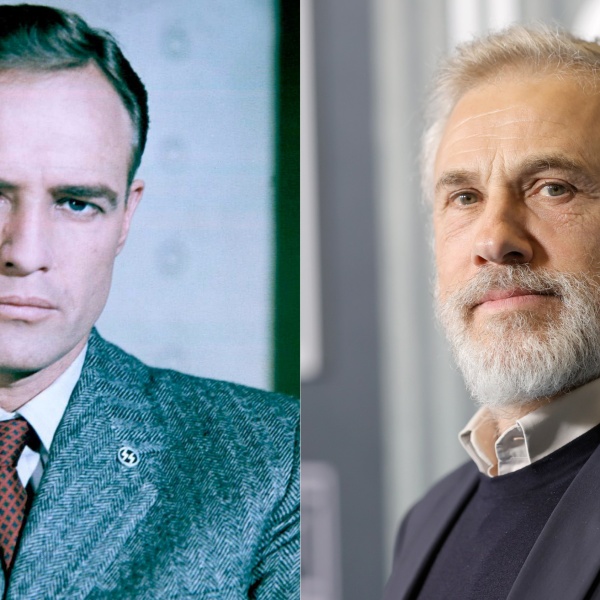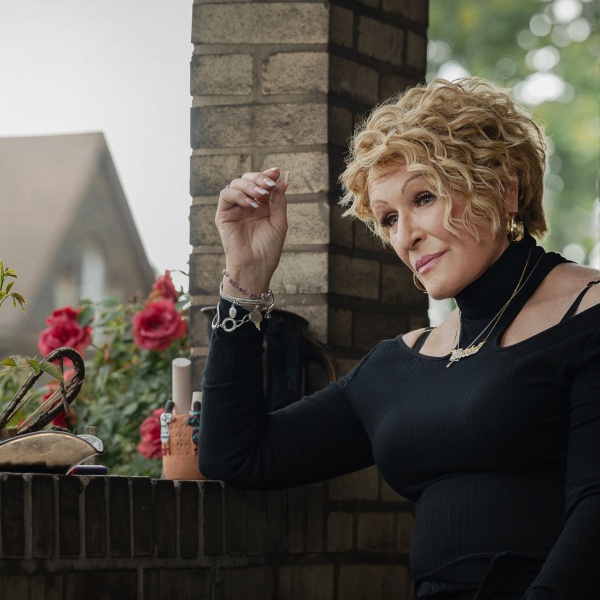
Anora — or “Ani,” as she prefers to be called — is a brassy, 23-year-old Russian-American stripper who shares a small house with her sister in Brighton Beach. Ivan — or “Vanya,” as he uses interchangeably — is the 21-year-old son of a Moscow billionaire who stays in his father’s cocaine mansion on the far side of Brooklyn whenever he’s in New York, which if it were up to him would be always. She works seven nights a week at the Manhattan strip club where she’s the only Russian-speaker. Ivan, meanwhile, has clearly never worked a day in his life. She’s the child of a mom who lives in Miami and a dad who doesn’t exist, while he’s a hyper-juvenile nepo baby who may never be mature enough to graduate into a large adult son.
There’s probably an effervescent rom-com to be made about these two wildly mismatched kids meeting over a lapdance and falling in love with each other after Ivan pays Ani $15,000 to be his “very horny girlfriend” for a week. Lucky for us, there is no way on God’s green Earth that Sean Baker — who’s devoted the better part of his career to destigmatizing sex workers across raw and frenzied and utterly exhilarating films like “Tangerine” and “Red Rocket” — would ever allow these characters to settle for such an inauthentic story. Not even a little bit.
On the contrary, the relentless Coney Island comedy that Baker has seduced from that premise cleaves a hell of a lot closer to “Uncut Gems” than it ever gets to “Pretty Woman.” Splenetically hilarious for more than two hours before reality catches up with it in the film’s unforgettable final scene, “Anora” has next to nothing to do with romance, and almost everything to do with the kind of working-class heartache that a modern Hollywood studio would never even try to get right.
It’s a heartache that Mikey Madison’s towering lead performance allows to hide in plain sight, even — or perhaps especially — when she isn’t wearing anything that might help to disguise it, and her naked body transforms into a double blind that invites she and Ivan to share in different sides of the same fantasy. Baker never shames Anora for her self-deception, nor resorts to any sweeping generalizations about the emotional dynamics of sex work.
On the contrary, he just winds his characters up and watches them hump and vape their way towards the inviolable truth that defines their particular situation, even — or perhaps especially — after they decide to get married during a ketamine-fueled weekend in Las Vegas at the end of the first act: Ivan is a spoiled brat who’s always been able to buy all the happiness he wants, while Ani is a wake-and-grind striver who’s never been afforded the luxury of wondering how much it might cost.
Baker’s movies live and die on the genius of their casting; not just because of the people he’s able to find, but also because of the characters he’s brave enough to go searching for in the first place. Played to entitled perfection by Mark Eydelshteyn, Ivan has a certain Timothée Chalamet-like appeal, but we know from the moment we meet him that he isn’t capable of being anyone’s prince in shining armor.
Truth be told, the kid looks about five minutes past finishing puberty, and he carries himself with a childlike energy that makes it seem like he’s still wearing pajamas even after he’s taken his clothes off. Ivan is sweet enough to Ani, but he relies in his money to take care of her happiness; he doesn’t think twice about firing up his Playstation the minute he’s done jack-hammering his rented girlfriend from behind, and only proposes to her because marrying an American might spare him from returning home to work for his father.
Ani is a lot smarter and less naive than her deep-pocketed new pal, but she’s equally delusional. While she recognizes Ivan for what he is, the money is so good that she can’t help but get lost in blinkered thoughts of what their life together could be. Anchored by a Brooklyn accent big enough to hear from Queens, and protected behind the chainmail of a “fuck you, pay me” attitude brash enough to print on a t-shirt and sell to tourists, Madison’s performance fills in the broad strokes of its signifiers with a pointillistic degree of lived-in detail.
Baker’s script is too happily stirring things up to bother spelling things out, which is just as well when his lead actress is able to convey the hot mess of Ani’s half-cocked opportunism with her posture alone. She might only be with Ivan for the money, but that doesn’t mean she’s faking the fun they have together with his friends. In fact, Ani is so convinced by the future they cook up together that she doesn’t stop to think about what Ivan’s parents will think when they discover that the heir to their fortune has gotten hitched to a sex worker (and thanks to Russian tabloid sites, they definitely will). She can’t even conceive of the idea that Ivan’s father might send his underlings to the house in order to chase her out, or that her new husband’s reaction would be to run away like the scared little boy that he is.
It’s only here, roughly an hour into the film, that the full scope of “Anora” finally begins to come into view. Baker’s direction is too rambunctious and his plot too well-considered for its pacing to feel like a problem, but none of his movies have more dramatically shifted into a higher gear than this one does when Ani is left to deal with her father-in-law’s Armenian goon squad. What starts as a threatening face-off soon spins into a flurry of comic violence worthy of a classic French sex farce, with Ani going completely feral as she fights to defend herself against three men who aren’t as tough as they look. Half the house is in shambles before both parties realize they’ll have to work together if they want to find Ivan before his parents arrive in New York the next day, and the uneasy alliance that forms between them will go on to fuel the second half of a film that finds Baker’s cast scouring the city on an all-night search for the brat who got away.
That “Anora” only becomes more gripping and self-possessed as it clenches into a hyper-concentrated ride-along is — again — a testament to the actors who Baker trusts to drive his story home. Chief among them is the director’s longtime collaborator Karren Karagulian (Toros), a dead ringer for Robert De Niro whose anxious presence helps to enhance the movie’s 35mm New Hollywood Cinema energy. It also makes him a perfect foil for his two goofy minions, the accident-prone Garnick (Vache Tovmaysa) and the bald-headed Igor (“Compartment No. 6” actor Yura Borisov), whose intimidating silence is undercut by his sympathy for Ani — and his deep affection for his grandmother.
These guys aren’t thugs who delight in the intimidation required in order to do their job, they’re just decent men who’ve pledged fealty to Ivan’s father in order to support their own families back home. As a simple babysitting job unravels into the longest night of their lives, inviting all sorts of funny banter and high-key moments of slapstick comedy along the way, Baker never loses sight of the fact that each of these characters are debasing themselves in the service of an oligarch who hardly knows that they exist. Every scene in “Anora” — every errant glance between Ani and her captors — strengthens the unspoken feeling that the members of this wild foursome are more aligned with each other than they are with any of the rich people who are pulling their strings.
Baker’s latest film may not appear to be setting itself up for the kind of emotional gut-punch that made “Tangerine” so transcendent, or allowed the sunbaked neo-realism of “The Florida Project” to wilt into a hurricane-strength tear-jerker, but the screamier and more drawn out this misadventure becomes, the more its characters begin to forge a battle-hardened bond that’s built on class solidarity and mutual exasperation. Everyone has an equal — and indomitable — force of will in Baker’s movies, and the visceral undertow that “Anora” is able to create between the collective urgency of its characters and the inescapable chokehold of their aspirations eventually crashes ashore with enough power to crush you in your seat.
Until the minute that tidal wave hits however, “Anora” is frequently as funny as “Red Rocket” was before it — and always much easier to laugh at. Drew Daniels’ anamorphic camerawork finds romance in the drudgery of a New York winter (the story spans from before New Year’s Eve to the Rangers/Islanders game that was played outside at MetLife Stadium on February 18), while simultaneously allowing for a warm polish that invites us to see the humor in even the darkest moments.
And, by the same token, to listen for confessions of truth in between the laughs. Words prove especially important in a film that hinges on a fateful “I do,” and flits between two languages with careful precision. Ani is reluctant to speak Russian, even though she understands it fluently, and it’s only after she and Ivan get married that she begins to slip into it on occasion. The ethnic identity a Slavic tongue confers upon her seems to rankle Ani — to push her to the margins of a city she’s eager to conquer, and put her in a box that she’ll never be able to escape.
Even her own name feels like a handicap, its built-in history preventing her from reaching the full potential of her fantasy, and/or the fantasy of her full potential. At one point Yuri googles the meaning of “Anora” so that he can explain it to her, but Ani isn’t interested. “We don’t care about names in America,” she replies amid a self-protecting string of epithets, as Madison settles on a perfect closing note for one of the most subtly conflicted scenes that Baker has ever shot. In this country, who we are runs a distant second to the promise of who might become. And that promise is growing emptier by the day.
Grade: A
“Anora” premiered in Competition at the 2024 Cannes Film Festival. NEON will release it in theaters later this year.







